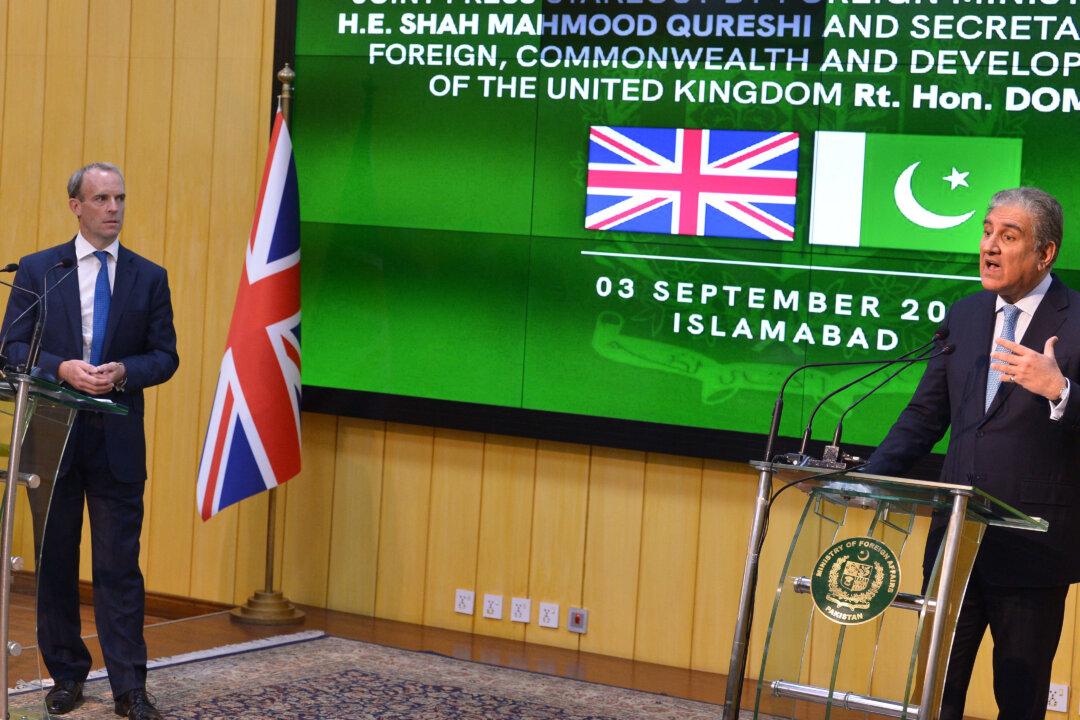British Foreign Secretary visited Pakistan on Thursday and Friday to discuss safe passages from Afghanistan for British nationals and Afghans who worked for the UK.
The foreign secretary posted a number of photos on Twitter, showing him arriving at what appears to be a mountain at the Pakistan–Afghanistan border by military helicopter, and speaking with Pakistani soldiers.





